ROBERT I. ROTBERG is the former director of the Program on Intrastate Conflict and Conflict Resolution at the John F. Kennedy School of Government at Harvard University and president emeritus of the World Peace Foundation. He is the author or editor of numerous books, among them When States Fail, China into Africa, and A Leadership for Peace.
The University of Chicago Press, Chicago 60637
The University of Chicago Press, Ltd., London
2012 by The University of Chicago
All rights reserved. Published 2012.
Printed in the United States of America
21 20 19 18 17 16 15 14 13 12 1 2 3 4 5
ISBN-13: 978-0-226-72898-8 (cloth)
ISBN-13: 978-0-226-72899-5 (paper)
ISBN-10: 0-226-72898-6 (cloth)
ISBN-10: 0-226-72899-4 (paper)
ISBN-13: 978-0-226-72900-8 (e-book)
Library of Congress Cataloging-in-Publication Data
Rotberg, Robert I.
Transformative political leadership : making a difference in the developing world / Robert I. Rotberg.
p. cm.
Includes bibliographical references and index.
ISBN-13: 978-0-226-72898-8 (hardcover : alkaline paper)
ISBN-13: 978-0-226-72899-5 (paperback : alkaline paper)
ISBN-10: 0-226-72898-6 (hardcover : alkaline paper)
ISBN-10: 0-226-72899-4 (paperback : alkaline paper)
1. Leadership. 2. Developing countriesPolitics and government. 3. Mandela, Nelson, 19184. Khama, Seretse, 19211980. 5. Lee, Kuan Yew, 1923 6. Ataturk, Kemal, 18811938. I. Title.
JF1525.L4R68 2012
303.34dc23
2011034676

This paper meets the requirements of ANSI/NISO Z39.48-1992 (Permanence of Paper).
Introduction
Recently a widely read, opinion-shaping world news magazine was bemoaning South African President Jacob Zumas lame leadershipreally his lack of anything that might be called real leadership. The magazine reminded readers that South Africa was sub-Saharan Africas biggest economy and most influential nation. South Africa could hence guide black Africa down the path of prosperity and full freedom, or backwards. It is largely up to Mr. Zuma to decide which way it goes, said the Economist. It called on Zuma to get a vision, providing it was a decent one. He has never explained, said the magazine, for what he stands.
Indeed, Zuma is no visionary. But a vision, minimally, is what accomplished political leaders are meant to provide. Their followers expect even more of committed leadershipa strategy for turning visions into reality and charting a way forward to a promising future, access to improving prospects, and a program for ensuring economic growth and material and human upliftbut rarely get it. This book explores the full range of those expectations and how they have been and will be met. It portrays the competencies of gifted leadership, primarily as experienced in recent decades across the developing world, and examines those special instances in which unusually accomplished nation-builders have in fact made an impactperforming ably in political leadership positions so as to inspire and to transform their emerging countries and to deliver abundant and high-quality political goods to their constituents.
Imaginative political leadership can make a telling difference in that way, particularly in the developing world. Peace, war, economic growth, a relief from poverty, beneficial educational and health outcomes, and a sense of belonging to a worthy national enterprise are all greatly influenced by the character and intentions of a nations leader. This book argues that greater attention than hitherto should be paid to the critical role of leadership in the developing world. It argues that leaders are more responsible for societal outcomes in the developing than in the developed world because in the former institutions are weaker. It also argues that formative leaders help to build nations and political cultures, and that their actions help to enable institutions to take root in otherwise stony soils. Leaders can shape political cultures and therefore breathe life into institutions. Leaders in emerging or postconflict countries help to build institutions almost from scratch. Leaders influence how governments performhow they serve or abuse their citizens. Leaders matter.
To operate at such critical levels demands abundant analytical, contextual, political, and emotional intelligence; compassion; tolerance; integrity; and many other intrinsic leadership competencies. This book elaborates on those competencies, indicating which ones matter in the context especially of effective political leadership. It offers content for the prime competencies and shows how they have and have not been deployed in the varied and rough context of emerging nations. The final chapter examines a range of leadership responses to the challenges of statehood in the contemporary era. Good leaders are contrasted with bad leaders and work-a-day transactionalists with visionary transformationalists, and the various modes of developing world political leadership are compared with those of four high-achieving, founding, nation-building leaders.
Political leadership has been studied intensively in this manner comparatively little, except by biographers of presidents and statesmen. Certainly, developing world leaders have featured only occasionally in the general leadership literature and even less in the biographically based leadership literature. The dominant examination of leadership focuses mostly on corporate and organizational leadership. It is instructive, but draws heavily on the examples of successful and less successful chief executive officers and heads of industry. Much of that literature explains well how corporate managers can make the most of their opportunities, challenges, talents, and limitations. But as rich and rewarding as it is, most of that vast corporate-inspired literature captures only in part the experiences and realities of political leadership in the developing world.
Notwithstanding the rather different contexts of corporate and political leadership, the former literature offers a number of helpful insights. Kanter wisely distinguishes between corporate managementoversight of the technical or functional aspects of an organizationand corporate leadershipa more dynamic effort to shape the direction of an organization. Her separation of the two corporate behavioral modes and responsibilities is equally instructive for this study of the varieties of political leadership in the developing world. Managers are transactionalists. Leaders are transformationalists.
A fulfilling psychological literature also exists that pertains insightfully to the family and other origins of leadership competencies and suggests the different inner qualities, even the genetic factors, that contribute to successful or unsuccessful leadership experiences. Psychobiographers have added further insights stemming from the study of individuals and groups across a variety of settings, even political settings. But only a scattering of examples encompass the impact of leaders on the peoples of the developing world.
Yet, the model and experience of responsible leadership in the developing world hold lessons for political leadership everywhere. That experience also helps to explain differences within the developing world, country by country and region by region, in terms of economic, social, and conflict outcomes. This book thus examines and characterizes political leadership in the poorer half of the world and shows how some, but only some, of its most accomplished and most articulate exponents have employed their abilities to benefit and to uplift their nations and peoples.

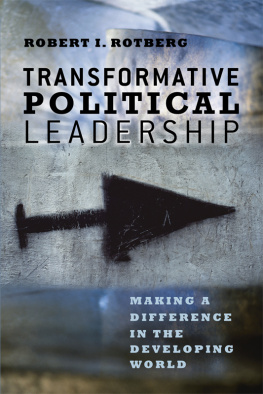



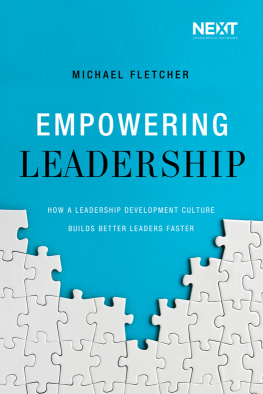

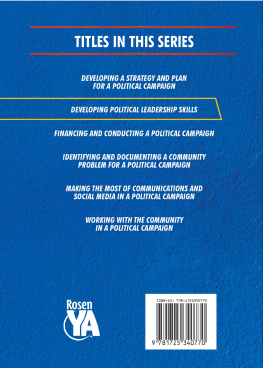
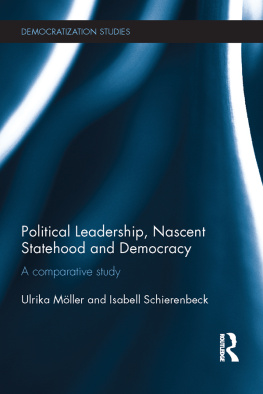
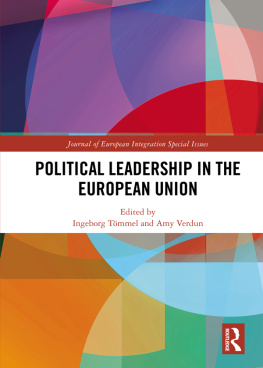
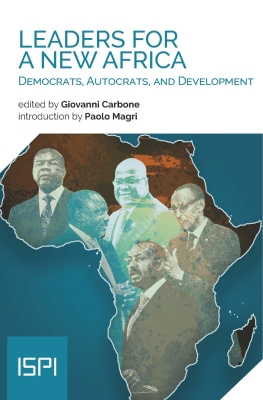
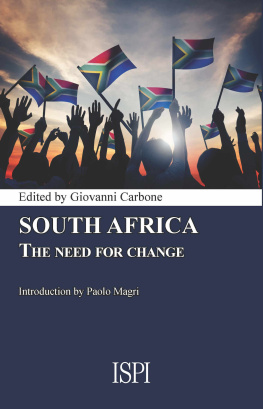
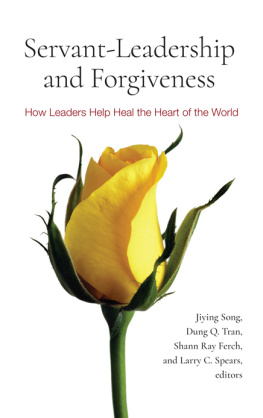
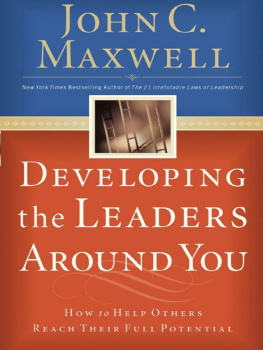
 This paper meets the requirements of ANSI/NISO Z39.48-1992 (Permanence of Paper).
This paper meets the requirements of ANSI/NISO Z39.48-1992 (Permanence of Paper).